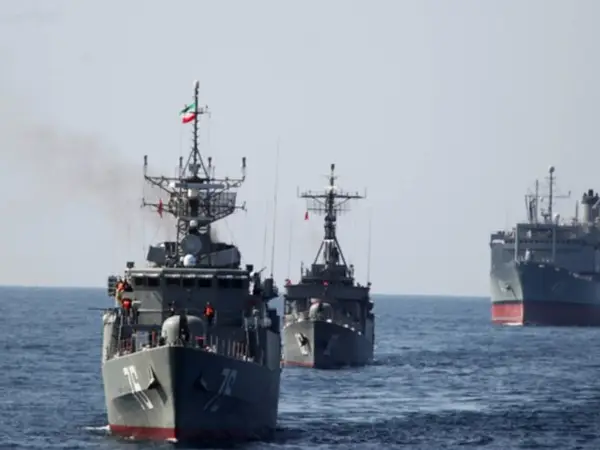Iran's navy commander said Saturday his country and Saudi Arabia, as well as three other Persian Gulf states, plan to form a naval alliance, including India and Pakistan.
"The countries of the region have today realized that only cooperation with each other brings security to the area," Iranian army's navy commander Shahram Irani was quoted as saying.
Iranian media had mentioned a new naval alliance this week without providing any details. There have been no hints by other regional countries about such a development.
Iran's Revolutionary Guard also has a navy along with the army's maritime force.
However, the United Arab Emirates unexpectedly announced May 31 that it had withdrawn from the US-led 34-nation Combined Maritime Forces coalition, which if true, signals a further weakening of the US position in the Middle East.
The Combined Maritime Forces task force, headquartered at the US naval base in Bahrain, works on security, counterterrorism and counter-piracy in the Red Sea and the Persian Gulf areas. But in fact, the US and Israel were trying to forge a regional coalition to contain Iran, including an air defense network.
"As a result of our ongoing evaluation of effective security cooperation with all partners, two months ago, the UAE withdrew its participation in the Combined Maritime Forces," the Ministry of Foreign Affairs said in a statement.
However, the US 5th Fleet on June 1 politely refuted the UAE claim and said that the country was still a "partner" in the multinational coalition.
The Iranian navy commander did not elaborate on the shape of the alliance that he said would be formed soon.
Iran has recently been trying to mend its strained ties with several Persian Gulf Arab states.
In March, Saudi Arabia and Iran ended seven years of hostility under a China-mediated deal, stressing the need for regional stability and economic cooperation.
At the time the deal was seen as a shift in Saudi foreign and security policies that for decades has relied on the United States for protection in return for a steady flow of oil at reasonable prices.
Tehran rejoiced the agreement with Riyadh, with officials repeatedly proclaiming a great diplomatic victory against Washington and another step toward their proclaimed goal of “expelling America” from the region.
Naval commander Irani said the states that will take part in the alliance also include the United Arab Emirates (UAE), Bahrain, Qatar, Iraq, Pakistan, and India.
Iranian officials often make exaggerated claims to boost domestic morale and Irani’s claims have to be echoed by regional Arab countries to have any credibility.
The region contains some of the world's most important shipping routes where, since 2019, suspected Iranian attacks began against oil tankers amid tensions with the United States. The Obama, Trump and Biden administrations chose not to retaliate against Iranian naval provocations over the years or show a convincing military deterrent response.
In its latest provocation in May, Iran seized two oil tankers transiting between UAE ports.
Saudi Arabia's rapprochement with Iran has frustrated Israel's efforts to isolate Iran diplomatically.
The UAE, which was the first Persian Gulf Arab country to sign a normalization agreement with Israel in 2020, resumed formal relations with Iran last year.
Bahrain and Morocco later joined the UAE in establishing ties with Israel.
